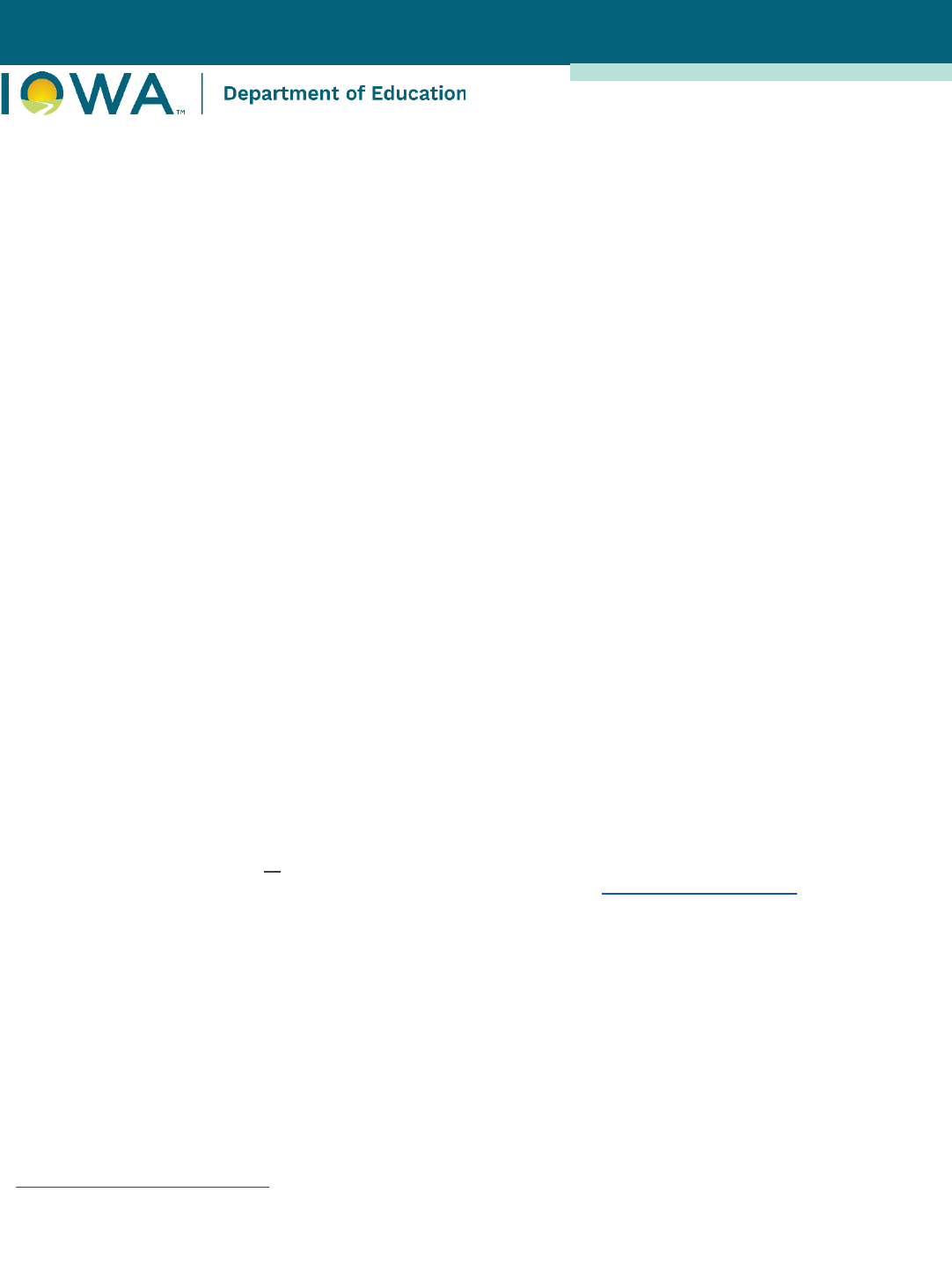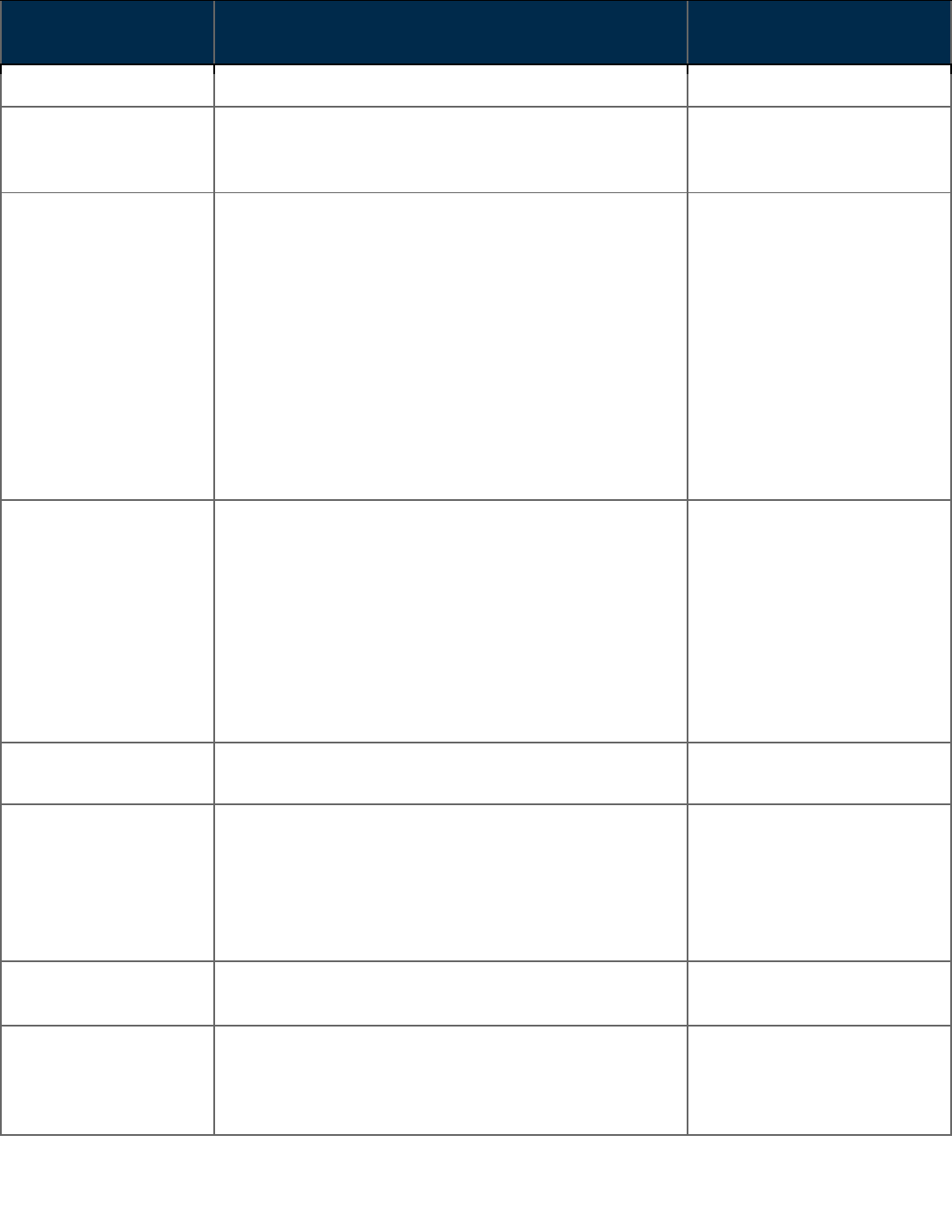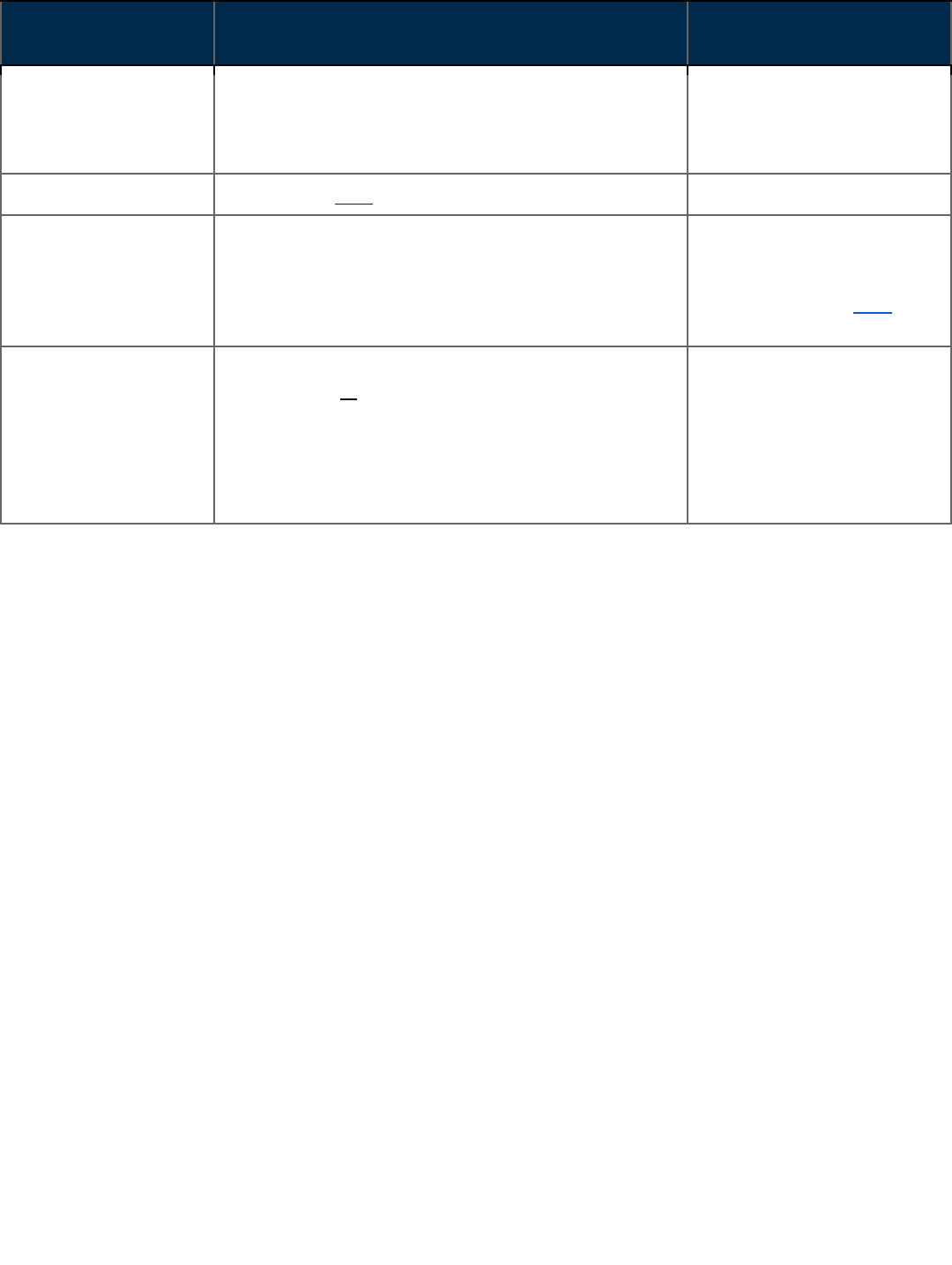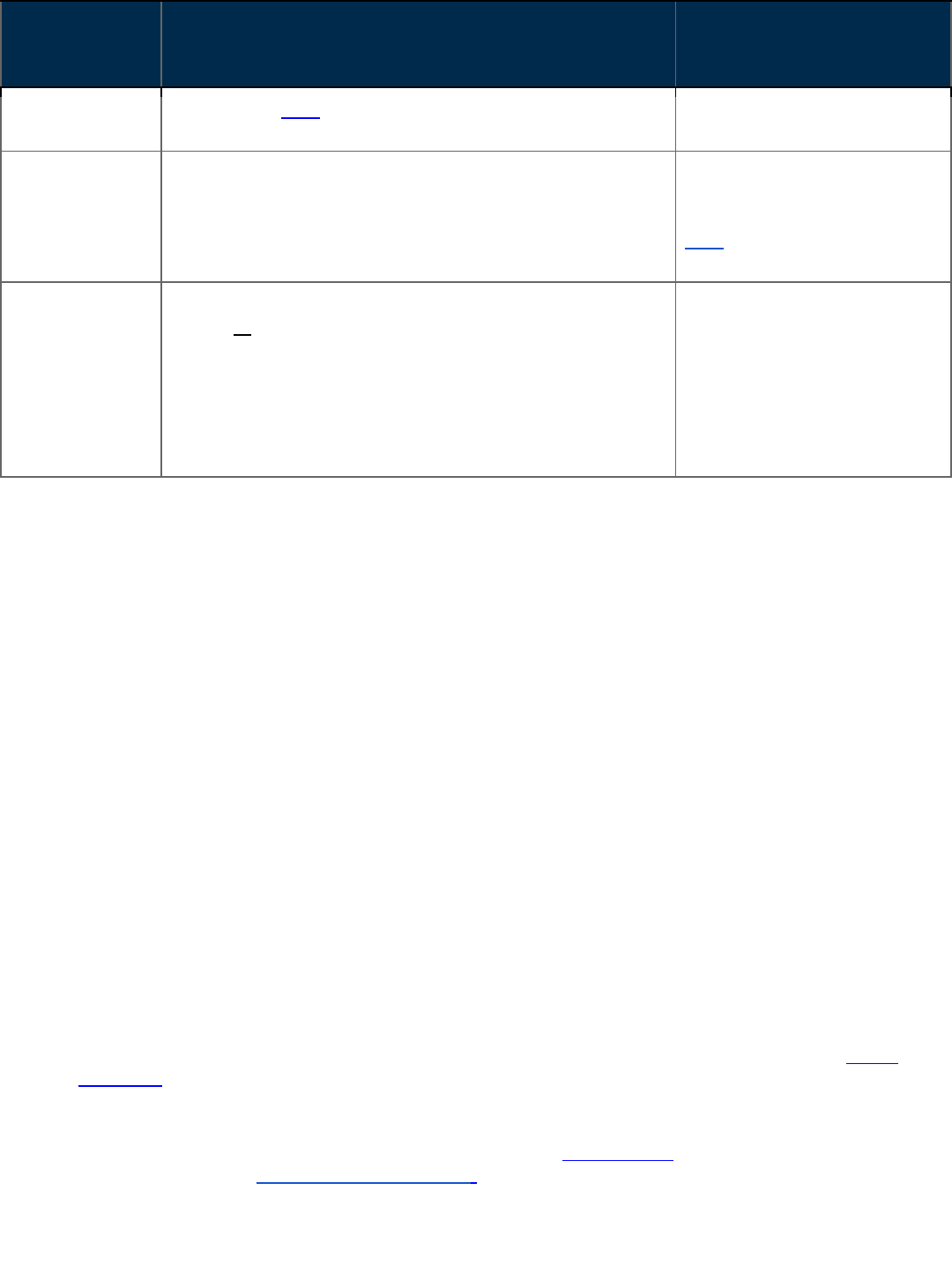
Iowa Department of Education guidance should be viewed as advisory unless it is specifically authorized by state statute, according to Iowa Code
section 256.9A. This does not apply to administrative rules, declaratory orders, or materials required by federal law or courts.
Page | 1
IOWA DEPARTMENT OF EDUCATION GUIDANCE
May 9, 2024
High School Education
Program and Graduation Requirements
Offer-and-Teach/Graduation Requirements
Introduction
The general accreditation standards require each high school (grades 9-12) to “offer-and-teach” certain
subjects and specify a minimum number of units for each course—although each school district selects its
own local curriculum, textbooks, and other classroom materials. This updated frequently asked questions
document reflects changes made during the 2024 legislative session.
Frequently Asked Questions
1. What is offer-and-teach?
Offer-and-teach means that the school or school district must make students aware of the offering, employ
an appropriately licensed teacher
1
to teach the course, and have the appropriately licensed teacher instruct
the students. Licensure requirements are set by the Iowa Board of Educational Examiners. Not only must a
course be offered and instructed by an appropriately licensed teacher, but at least one student needs to be
enrolled in a course for it to meet the offer-and-teach requirement (Iowa Admin. Code r. 281— 12.5(16)).
Offer-and-teach units may be met in the following ways:
● Direct instruction by a teacher on-site with an appropriate Iowa-licensed teacher;
● Whole-grade sharing pursuant to Iowa Code section 282.10;
● Written agreement to jointly employ or share teachers pursuant to Iowa Code section 280.15 (school
districts only); and
● Through an agreement with community colleges pursuant to Iowa Code section 279.50A . 261E.8
(concurrent enrollment program). *Secondary licensure is not required for community college
employed instructors or a teacher employed by the school district, as long as the course is offered for
college credit under the concurrent enrollment program. See Senior Year plus guide for more
information.
2. What are the minimum requirements for offer-and-teach and graduation?
All high schools (public and accredited nonpublic) must annually offer-and-teach a minimum program to meet
state accreditation. In addition to offer-and-teach requirements, each student graduating from a district or
state accredited nonpublic school must meet specific graduation requirements. Iowa Code sections 256.7,
subsection 26 and 256.11, subsection 5 establish the minimum graduation requirements for students.
Districts and nonpublic schools may require additional requirements for graduation. Graduation requirements
are provided in Table 1 for school districts and in Table 2 for accredited nonpublic schools.
1
Appropriately licensed means the individual has a current Iowa teaching license that is appropriate for the student’s
grade level and for the content area(s) being taught.

Iowa Department of Education guidance should be viewed as advisory unless it is specifically authorized by state statute, according to Iowa Code
section 256.9A. This does not apply to administrative rules, declaratory orders, or materials required by federal law or courts.
Page | 2
Table 1. Public District Offer-and-Teach and Graduation Requirements.
Content
Offer-and-Teach (Requirement of the district)
Graduation (Requirement
of the student)
English-language arts
6 units
4 units
Social studies
5 units (must include 1 unit of American history and
½ unit of government)
3 units (must include 1 unit
of American history and ½
unit of government)
Mathematics
6 units, as specified in 281—IAC 12.5(5)“c” (4
sequential units and 2 additional units)
The two additional units of mathematics may include
instruction related to applied sciences, technology,
engineering, or manufacturing, including
transportation, distribution, logistics, architecture,
and construction, which may be offered and taught
through dedicated units of coursework or through
units that also meet the requirements of the courses
related to career and technical education in this
service area.
3 units
Science
5 units (must include chemistry and physics, which
may be offered in alternating years)
The five units of science may include not more than
two units of instruction related to agriculture, which
may be offered and taught through dedicated units of
agriculture coursework or through units that also
meet the requirements of the courses related to
career and technical education in this service area.
3 units
Health
1 unit
Local district decision
Physical education
(PE)
1 unit
*1 unit, ⅛ unit per semester
unless the student meets
the excusal and/or
exemption below.
Fine arts
2 units. This was lowered from 3 units to 2 units
during the 2023 legislative session.
Local district decision
World language
2 units. This was lowered from 4 units to 2 units
during the 2023 legislative session.
Local district decision

Iowa Department of Education guidance should be viewed as advisory unless it is specifically authorized by state statute, according to Iowa Code
section 256.9A. This does not apply to administrative rules, declaratory orders, or materials required by federal law or courts.
Page | 3
Content
Offer-and-Teach (Requirement of the district)
Graduation (Requirement
of the student)
Vocational
education/career and
technical education
(CTE)
12 units, as specified in 281—12.5(5)“i” (3 units each
in at least 4 of the 6 service areas)
Local district decision
Computer science
½ unit. Click here for additional information.
Local district decision
Cardiopulmonary
resuscitation (CPR)
N/A
Every student must
complete a certification
course for CPR by the end
of grade 12. Click here for
additional information
Financial literacy
½ unit. The one-half unit (course) may be a stand-
alone course or the content may be integrated into
units (courses) through existing coursework. Existing
coursework could include science, mathematics,
social studies, English or career and technical
education. Iowa Code section 256.11 subsection 5.
Local decision

Iowa Department of Education guidance should be viewed as advisory unless it is specifically authorized by state statute, according to Iowa Code
section 256.9A. This does not apply to administrative rules, declaratory orders, or materials required by federal law or courts.
Page | 4
Table 2. State Accredited Nonpublic School Offer-and-Teach and Graduation Requirements
Content
Offer-and-Teach Requirement (Requirement of the
school)
Graduation Requirement
(Requirement of the
student)
English-
language arts
6 units
4 units
Social studies
5 units (must include 1 unit of American history and ½
unit of government)
3 units (must include 1 unit of
American history and ½ unit
of government)
Mathematics
6 units, as specified in 281—12.5(5)“c” (4 sequential units
and 2 additional units)
The two additional units of mathematics may include
instruction related to applied sciences, technology,
engineering, or manufacturing, including transportation,
distribution, logistics, architecture, and construction,
which may be offered and taught through dedicated units
of coursework or through units of coursework that also
meet the requirements of the coursework required under
paragraph “h”, subparagraph (1), subparagraph division
(c).
3 units
Science
5 units (must include chemistry and physics, which may
be offered alternating years)
The five units of science may include not more than two
units of instruction related to agriculture, which may be
offered and taught through dedicated units of agriculture
coursework
3 units
Health
1 unit
Local school decision
Physical
Education
1 unit
*1 unit, ⅛ unit per semester
unless the student meets the
excusal and/or exemption
below.
.
Fine arts
2 units
Local school decision
World language
2 units
Local school decision
Vocational
education/CTE
5 units, as specified in 281—12.5(5)“j”
Local school decision

Iowa Department of Education guidance should be viewed as advisory unless it is specifically authorized by state statute, according to Iowa Code
section 256.9A. This does not apply to administrative rules, declaratory orders, or materials required by federal law or courts.
Page | 5
Content
Offer-and-Teach Requirement (Requirement of the
school)
Graduation Requirement
(Requirement of the
student)
Computer
science
½ unit. Click here for additional information.
Local school decision
CPR
N/A
Every student must complete
a CPR certification course by
the end of grade 12. Click
here for additional
information.
Financial
Literacy
½ unit. The one-half unit (course) may be a stand-alone
course or the content may be integrated into units
(courses) through existing coursework. Existing
coursework could include science, mathematics, social
studies, English or career and technical education. Iowa
Code section 256.11 subsection 5.
Local school decision
*Physical education exemptions and excusals include:
● Enrollment in academic courses not otherwise available to the student.
● Participation in a work-based learning program or other educational program authorized by the school
which requires the student to leave the premises for specified periods of time during the school day.
(Excusal)
● Participation in an activity that is sponsored by the school in which the student is enrolled which
requires at least as much physical activity per week as one-eighth unit of physical education.
● Participation in a ROTC program. (Excusal)
● Participation in a legislative page program. (Excusal)
● Statement from a parent that physical education conflicts with the student’s religious belief (This also
applies to health courses, the Healthy Kids Act physical activity requirement, and the CPR
requirement.) (Exemption)
● Statement signed by a physician that a student is not “physically able” to participate in physical
education (This also applies to the Healthy Kids Act physical activity requirement, and the CPR
requirement. (Exemption)
● Iowa Code § 256.11(5)(g); 256.11(6)
3. What is a unit of instruction?
In grades nine through 12, a unit is a course that meets one of the following criteria:
● It is taught for at least 200 minutes per week for 36 weeks;
● It is taught for the equivalent of 120 hours of instruction;
● It requires the demonstration of proficiency of formal competencies associated with the course
according to the State Guidelines for Competency-Based Education (CBE) or its successor
organization; or
● It is an equated requirement as a part of an innovative program filed as prescribed in rule 281—
12.9(256).
Fractional Unit
A fractional unit must be calculated in a manner consistent with 281-12.5(14), unless competency-based
instruction is used, (see the CBE Program Standards).

Iowa Department of Education guidance should be viewed as advisory unless it is specifically authorized by state statute, according to Iowa Code
section 256.9A. This does not apply to administrative rules, declaratory orders, or materials required by federal law or courts.
Page | 6
Regular and Block Scheduling
With “regular” scheduling, a year-long course is normally the equivalent of one unit of instruction. A
semester-length course is normally the equivalent of one-half unit of instruction. With “block” scheduling, a
block-length course taught for one semester is usually the equivalent of one unit.
4. Are offer-and-teach requirements met if the district or school only “offers” (and
does not teach) a subject because no students are enrolled in the course? When is a
subject considered offered? When is a subject considered taught?
No. It is not sufficient for a district to “offer” a course in the high school program and have no students
receiving instruction. To meet the requirements of offer-and-teach, the course must also be “taught” (Iowa
Admin. Code r. 281—12.5(16)).
5. Does a class offered outside the scheduled bell time meet offer-and-teach?
No. (Iowa Admin. Code r. 281—12.5(16)).
6. When sharing courses with another district, must students from both districts be
enrolled to meet offer-and-teach?
Yes. Each participating high school must have students enrolled in the shared program for the course to
count toward offer-and-teach. Each district that sends students to a shared class intending for said program
to fulfill the offer-and-teach requirement must provide transportation for students enrolled in the shared
program. If a sending school district contracts with a receiving school district to provide a program as part of
the sending district’s offer-and-teach requirement, the sending district is required to provide transportation
(Iowa Admin. Code r. 281—12.5(16);
For a district with multiple high schools and/or a district with an alternative school: As long as students have
access to courses in other buildings not all of the district’s high schools need to meet offer-and-teach.
However, students must be aware of the offerings and be provided access (e.g., transportation) to other
building courses.
7. Can courses offered through concurrent enrollment be used to meet a district’s
minimum program requirements?
Yes. A school district or school can use contracted community college courses to meet any high school
offer-and-teach requirements. However, the sharing agreement is only applicable if all of the following
conditions are met:
● The unit is offered during the regular school day.
● The unit is made accessible by the school district to all eligible pupils (Iowa Code § 279.50A (1)).
● The unit meets additional requirements outlined in Iowa Code 257.11, subsection 3, paragraph “b”,
subparagraphs (2) through (7). See Senior Year plus guide for more information.
Any concurrent enrollment course utilized to meet minimum program requirements is not eligible for
supplementary weighted funding under section 257.11, subsection 3. Regardless of whether the district
receives supplementary weighted funding, the district shall not charge tuition to its students who participate in
a concurrent enrollment course. See Senior Year Plus Guide for more information.
8. May a teacher instruct two or more courses simultaneously?
Yes, two or more sequential units of one subject area may be taught in the same classroom at the time in
grades nine through 12. These courses will meet minimum offer-and-teach requirements. (Iowa Code §
256.11(5A)).
A district may also utilize a community college-employed instructor or a district-employed teacher to teach
two or more courses in one subject area simultaneously, if the instructor is providing instruction under the

Iowa Department of Education guidance should be viewed as advisory unless it is specifically authorized by state statute, according to Iowa Code
section 256.9A. This does not apply to administrative rules, declaratory orders, or materials required by federal law or courts.
Page | 7
concurrent enrollment program (Iowa Code 261E.8). Secondary licensure is not a requirement for providing
instruction under the concurrent enrollment program. See Instructor Credentialing.
Please note, community colleges have specific requirements which must be met in order to deliver
postsecondary courses (Iowa Code 260C, Higher Learning Commission (HLC), National Alliance of
Concurrent Enrollment Partnerships (NACEP)). Therefore, schools who intend to deliver coursework where a
combination of sequential unit offerings may impact the delivery of a postsecondary concurrent enrollment
course will need to ensure discussions have occurred with their contracting community college prior to
instruction occurring to have the arrangement approved.
9. Can Algebra IA and Algebra IB be counted for offer-and-teach?
If Algebra I is offered, then no. If Algebra IA, Algebra IB, and Algebra I are teaching the same standards, they
are considered the same course and only count as one unit toward the offer-and-teach requirements. The
same would be true for other courses teaching the same standards and benchmarks (Iowa Admin. Code r.
281—12.5(5)“c”).
10. Does enrolling students in PE only one semester or trimester per year meet offer-
and-teach?
Yes, but only with an approved Flexible Student and School Program Waiver. Iowa Admin. Code r. 281—
12.9(1)). For additional technical assistance on PE, see the PE and Health Education webpage.
11. Must physics and chemistry be offered each year?
No. They can be offered in alternate years. However, five units of science must be offered annually. If
physics is offered every other year, the total number of science units required for offer-and-teach must still be
five units (Iowa Admin. Code r. 281—12.5(5)“d”).
12. Can health be offered on alternate days with PE and meet offer-and-teach?
Yes. If the total health instructional time is equal to 120 hours or more during the year, it would count as one
unit of health. If the total instructional time is equal to 60 hours during the year, then it would count as one-
half unit (Iowa Admin. Code r. 281—12.5(5)“e”).
13. Does the Department of Education have a resource that shows what
endorsement a teacher needs to teach a specific course or content area?
Yes. The BEDS Crosswalk lists the course code, course title and licensure endorsement needed.
14. Do independent study courses meet offer-and-teach guidelines?
No. Independent study courses do not meet the requirement of direct instruction (Iowa Admin. Code r. 281—
12.5(5)).
15. Can a supervised study hall or lab that provides support to students in math or
language arts qualify for offer-and-teach?
No. The supervised study hall or lab is a support for completing homework and does not provide direct
instruction with distinct standards and benchmarks as is required for offer-and-teach (Iowa Admin. Code r.
281—12.5(5)).
16. Does an AP course count for offer-and-teach, even when the content may be the
same as a non-advanced course?
Yes. For example, AP US History and US History both count as a unit for offer-and-teach.

Iowa Department of Education guidance should be viewed as advisory unless it is specifically authorized by state statute, according to Iowa Code
section 256.9A. This does not apply to administrative rules, declaratory orders, or materials required by federal law or courts.
Page | 8
17. May online AP courses be used to meet offer-and-teach?
Yes, provided that those courses are available to all eligible students.
18. Do online courses being used for offer-and-teach need a waiver?
It depends. Districts and accredited nonpublic schools may use two online courses to meet offer-and-teach
without a waiver. In addition, districts/schools may use online courses to meet offer-and-teach if either of the
following apply:
● The district/school makes every reasonable and good faith effort to employ a licensed teacher to
teach the course but is unable to or
● Fewer than 10 students typically register for the course.
For additional information, please see the Online Learning page. The school district or school is responsible
for providing an appropriately licensed Iowa teacher and aligning online courses with applicable academic
standards (state and federal; Iowa Code § 256.9(55)).
19. Have any online private providers been approved?
Yes. Refer to the Online Learning page for a list of current providers.
20. What are the student graduation requirements?
All students in schools and school districts must satisfactorily complete at least the following requirements to
graduate:
● Four units of English-language arts;
● Three units of mathematics;
● Three units of science;
● Three units of social studies, which may include the existing graduation requirements of one-half unit
of United States government and one unit of United States history;
● One full unit of physical education; and
● Complete a CPR certification course by the end of grade 12. (Iowa Admin. Code r. 281—12.5(5);
Iowa Code § 256.11(5)"k").
In implementing the high school program standards, use the curriculum standards specified in Iowa Admin.
Code r. 281—12.5(5)“a”-“l.”
School districts and schools are required to establish graduation requirements. The requirements shall
include the items listed above and may include additional locally determined criteria. (Iowa Code § 280.14)
Additional Questions and Resources
Contacts
Please contact one of the Iowa Department of Education school improvement consultants with questions.
Supplemental Resources
Iowa Code and Administrative Rules
● High School Educational Standards (Iowa Code § 256.11(5))
● General Accreditation Standards (Iowa Admin. Code 281—12)
● Definitions (Iowa Admin. Code r. 281—12.2)
